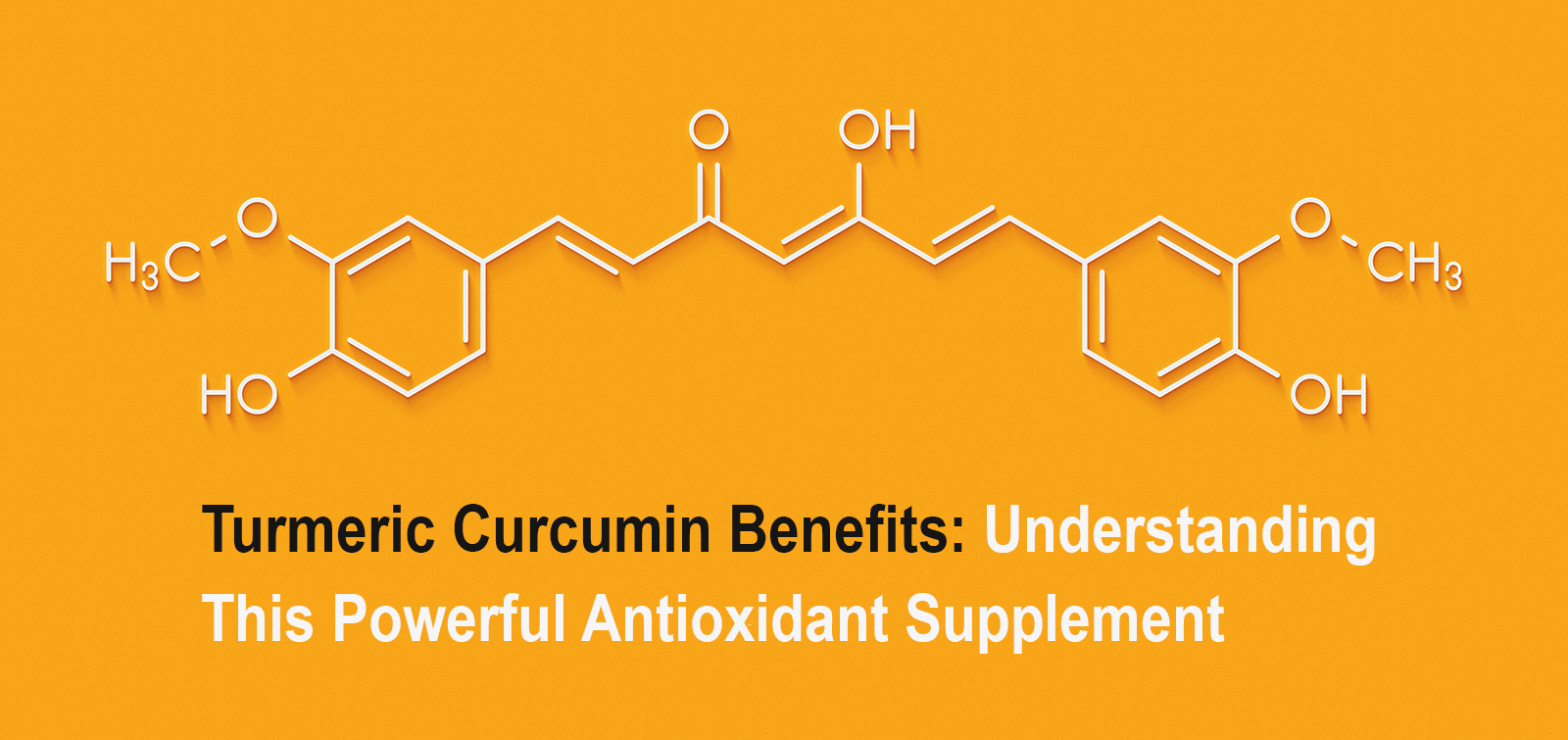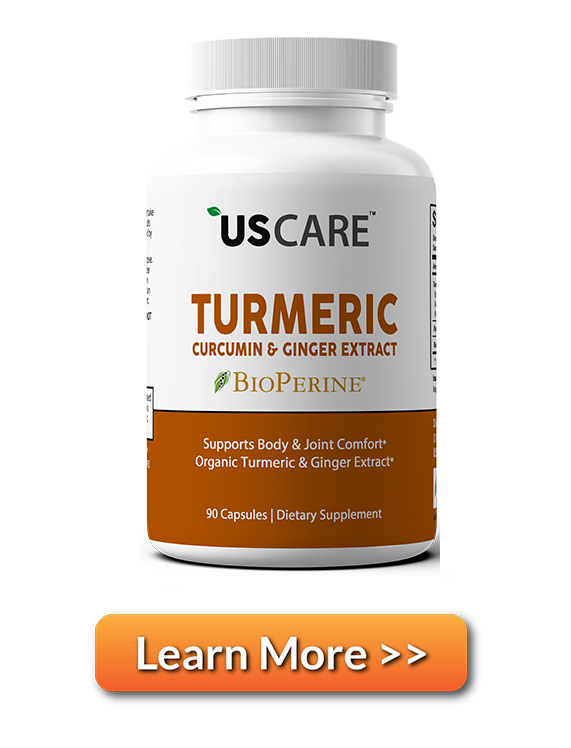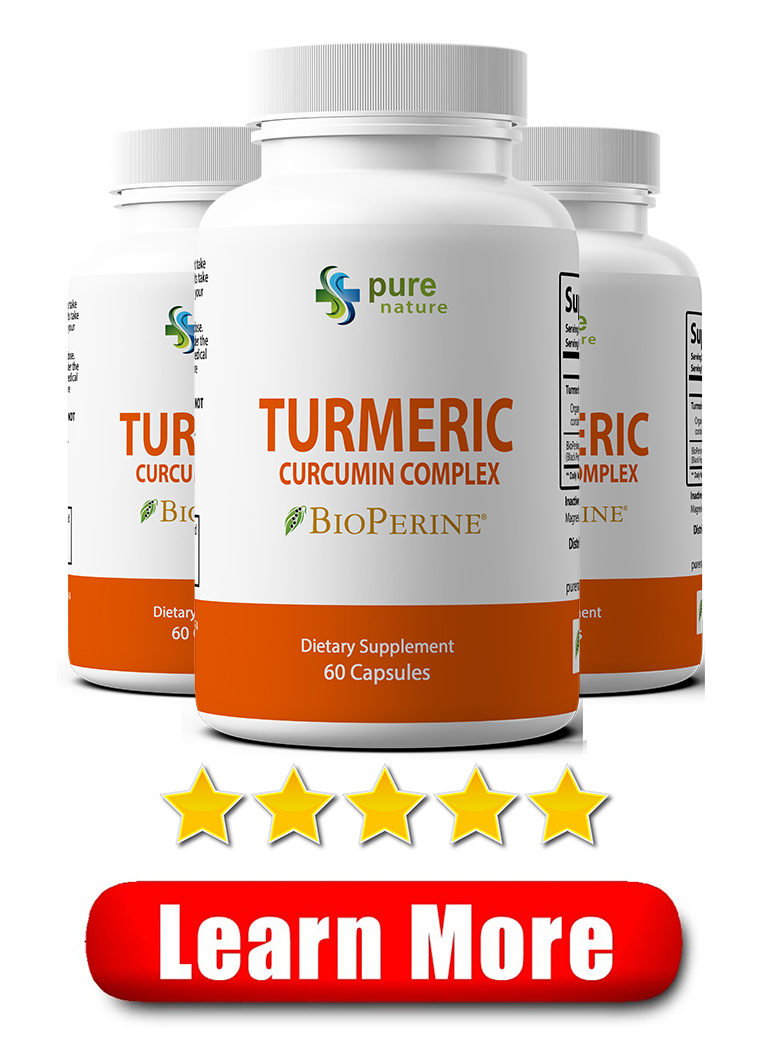
There are many benefits to adding turmeric curcumin supplement to your daily diet. Turmeric Curcumin target free radicals, a known trigger for several human diseases. It works as a powerful anti-inflammatory and anti-oxidant; combined with BioPerine, an effective turmeric supplement is designed for maximum nutrient absorption.
- Turmeric is a Natural Anti-Inflammatory Compound – As mentioned, the natural anti-inflammatory ingredient in turmeric, curcumin will reduce inflammation. The body’s inflammation response is relevant to disease. If your body thinks it’s being attacked by something it automatically sends out compounds to cause the body to swell. This can cause a lot of symptoms, including pain and is thought to play a role in all illnesses.
- Helps Lesson the Pain of Arthritis – Most diseases that cause a lot of inflammation like arthritis does, can be relieved by including turmeric in your diet. Studies are showing a curcumin supplement is more effective than most prescribed drugs.
- Increases Antioxidant Effects – Antioxidants reduce free radicals which cause disease. The oxidative damage caused by free radicals is thought to be a co-factor in many diseases including cancer.
- Help prevent type 2 diabetes – the active polyphenol in turmeric known as curcumin may provide an ideal intervention for type 2 diabetes, capable of mitigating characteristic pathophysiological hallmarks of the disease such as elevated blood sugar (hyperglycemia) and insulin resistance.
- Boosts Brain Function – During your lifetime the neurons in your brain are able to multiply and increase in number. This process is faster when you are young, and slower as you age. Curcumin increases the levels of brain derived neurotrophic factors (BDNF) which may delay or reverse brain diseases.
- Lowers Risks of Heart Disease – One of the biggest killers on the Earth for humans is heart disease. There is no one contributor to heart disease and certainly diet and exercise are important but some promising studies show that adding curcumin to your diet can improve your health and help prevent and even reverse heart disease.
- Help Prevent Alzheimer’s Disease – Alzheimer’s is thought to be caused by amyloid plaques, a type of protein tangles, building up in the brain. Curcumin may slow down the buildup of this protein and possibly even reverse the buildup.
- Helps Fight Depression – Studies are starting to show that depression might also be the result of inflammation. According to several studies, curcumin might be as effective as common antidepressants like Prozac. While more studies need to be done, people have seen improvement by adding one gram of curcumin to their supplement regimen with good results.
- Helps Fight Aging – It all comes down to fighting inflammation again, and it really helps to include turmeric in your daily diet or as a curcumin supplement. The combination of anti-inflammation and anti-oxidants plays a major role in helping to fight aging.
These benefits are just the tip of the iceberg. As studies continue they are finding that adding curcumin to your day can lead to improved cognition, better cardiovascular health, and improved mood. What could be better than that?
The Result: We tested over 100+ brands of Turmeric pills in the market in house. We did extensive research on top brands, read consumer’s reviews and surveyed over 11,571 customers.
Here Is The #1 Rated Brand
#1 USCare Turmeric
- Essential Ingredients 100%
- Label Accuracy 100%
- Potential Results 99%
- Overall Score 100%
Essential Ingredients: we check every products ingredients list for safety and dosage amount in comparison to published research studies.
Potential Results: we consider the dosage and essential ingredients in each label and then compare them to published studies to measure their potential effectiveness.
Return Policy: we check the products’ return procedure and policy and make sure top brands offer a hassle-free refund.
Overall Score: we take essential ingredients, potential results and return policy scores and rank the top 5 brands based on their average score.
*This is a subjective assessment based on the strength of the available information and our independent research and customer feedback.
**Results may vary based on individual.
***Disclosure of Material Connection: we only recommend products and services which we believe will add value to the users. However, you should assume the owner of this website and/or blog has an affiliate relationship and/or another material connection, to any suppliers of goods and services that may be discussed here and may be compensated for showing ads or recommending products or services or linking to the supplier’s website.
There are numerous scientific papers on the benefits of turmeric curcumin. We have compiled some of the literature for your convenience.
[7] Farooqui, Akhlaq A. 2016. Therapeutic potentials of curcumin for Alzheimer disease.
[8] Ferrari, C. K. B. (2004) Functional foods, herbs and nutraceuticals: towards biochemical mechanisms of healthy aging. Biogerontology 5, 275–289.
[10] Goel, A., Kunnumakkara, A. B., and Aggarwal, B. B. (2008) Curcumin as ‘‘curecumin’’: fromkitchen to clinic. Biochem Pharmacol. 75, 787–809.
[12] Lobo V, Patil A, Phatak A, Chandra N. (2010). Free radicals, antioxidants and functional foods: Impact on human health. Pharmacognosy Reviews 4(8):118-126.doi:10.4103/0973-7847.70902.



